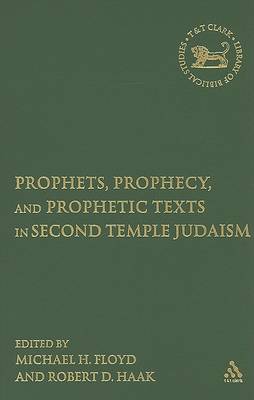The Library of Hebrew Bible/Old Testament Studies
1 total work
v. 427
Prophets, Prophecy, and Prophetic Texts in Second Temple Judaism
by Michael Floyd and Robert D. Haak
Published 1 April 2006
The emergence of prophetic literature in Israel, of the sort represented in the Latter Prophets' section of the Jewish biblical canon, is often described as the natural goal or outcome of the historical development of Israelite prophecy. However, similar prophetic traditions in similar surrounding cultures did not produce anything truly analogous to the biblical prophetic books. Therefore, there is no inherent reason for Israelite prophecy to have developed in such a way. This collection of essays alternatively proposes that the production of this kind of prophetic literature was conditioned by the particular circumstances of the early Second Temple period, when most of it was written. To understand how this kind of prophetic literature flourished at this particular time, and then gave way to prophetic literature of a very different sort (i.e., apocalyptic), the phenomenon of prophetic intermediation will be considered in relation to three aspects of historical change: the world view in terms of which divine agency was imagined, the demographics of the religious community, and the sociological domain and function of the scribal elite. LHB/OTS (JSOTS) volume 427.
